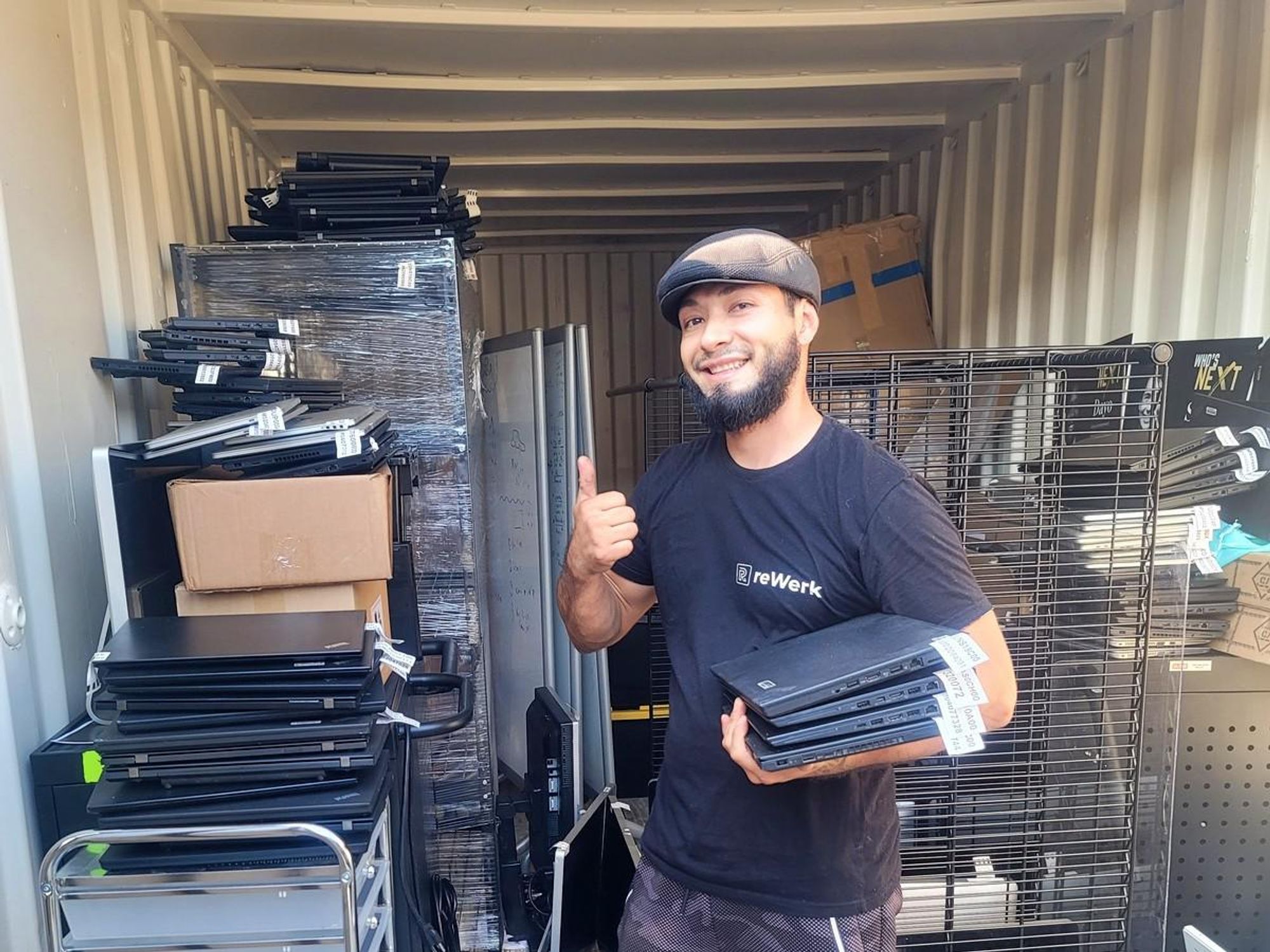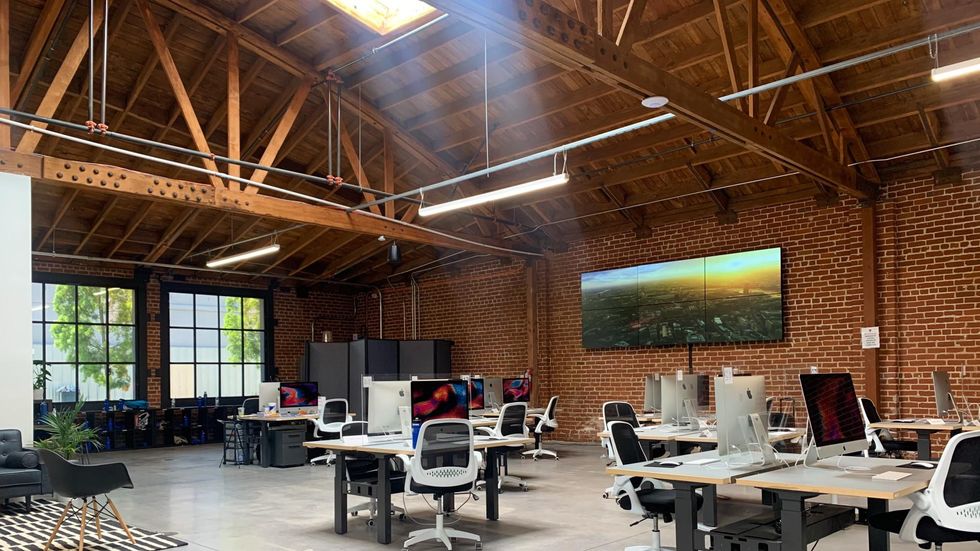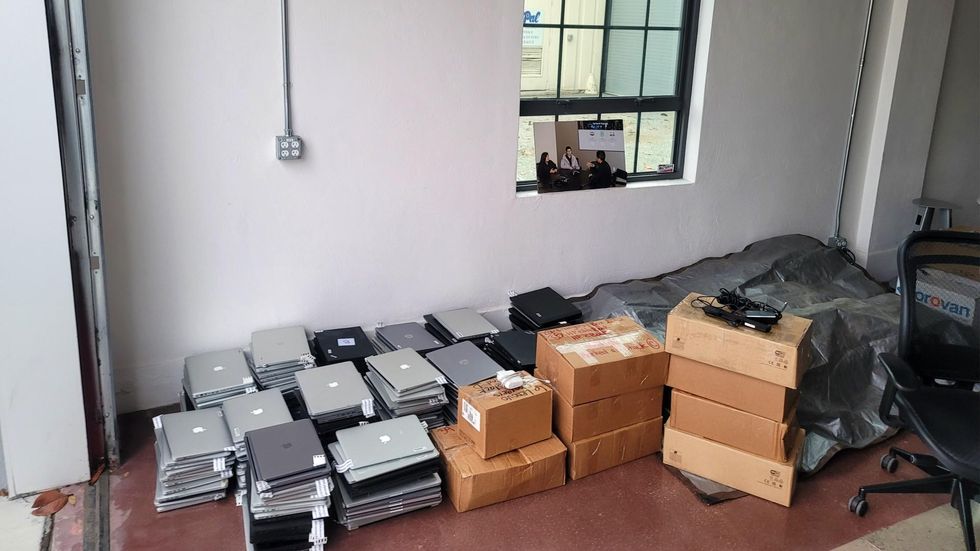The Pandemic Left Offices Full of Unused Tech and Students Without Digital Access. Then reWerk Stepped In.
Favot is an award-winning journalist and adjunct instructor at USC's Annenberg School for Communication and Journalism. She previously was an investigative and data reporter at national education news site The 74 and local news site LA School Report. She's also worked at the Los Angeles Daily News. She was a Livingston Award finalist in 2011 and holds a Master's degree in journalism from Boston University and BA from the University of Windsor in Ontario, Canada.

During the pandemic, California schools and nonprofits found themselves in desperate need of technical equipment to stay connected to their communities, clients and students.
Meanwhile, hundreds of thousands, if not millions, of laptops, monitors and keyboards began collecting dust in tech offices across the state after Gov. Gavin Newsom ordered office workers in non-essential roles to stay home.
The disconnect gave Will Bumpus pause.
Tech companies were offering employee stipends so they could buy an ergonomic chair or an extra monitor to furnish a home office. On a 'listening tour' to C-Suite leaders of California companies, it became clear some of the gear that was being replaced in home offices throughout the state, was not going to be needed.
That's when he had an idea: What if some of that valuable equipment could go to Black and Latino students who were missing classes and had no sure way to reconnect with their schools? Or to nonprofits that serve these communities?
In August 2020, Bumpus founded reWerk, a not-for-profit company that receives corporate donations and redistributes them to nonprofits and schools to close the digital divide. So far, major companies like Disney, Twitter and Yelp have donated equipment.
"You were reading stories about some of these organizations where students were going to Taco Bell to get internet, going to Starbucks to get internet," Bumpus said. "And it just made it so much clearer that the digital divide is only getting worse as it relates to COVID."
The digital divide is generally a reflection of socioeconomic and racial inequities.
A 2020 UCLA study found Black and Latino households were 1.3 to 1.4 times as likely as white households to experience limited digital access, while two in five low-income households had limited access to a computer or the internet.
In practice, it can mean the difference between a student who has access to multiple devices at home and high-speed internet and one who has to share one device among the entire family and has slower internet speeds.
And as classes moved online and teachers began embracing technology, a shift that is expected to continue as classrooms reopen, the digital divide is growing even starker.
On that listening tour, Bumpus, an early-stage investor and partner at Concrete Rose Capital -- which works with tech startups that are led by or targeted toward people of color -- and the son of TV host Gayle King, asked these tech companies if they wanted to donate excess equipment.
Disney recently donated nearly 400 MacBooks and PC laptops and more than 200 monitors to reWerk, which then distributed them to Loren Miller Elementary School in South Los Angeles, Digital NEST and StreetCode Academy.
Jacob Martinez, founder of DigitalNest, a reWerk partner, described the tech offices as "office utopias," Bumpus said. They had everything you needed to work, but sat empty.
Bumpus said not only will the donations of computers and monitors give those children access, it can help inspire them to aspire to a job in tech.
"A story I would love to tell in a year or so is one of the laptops that was donated from Disney was brought to a Black kid in Crenshaw, who then can not only develop something on there, but learn that that same engineer at Disney made a new film on this, and now I want to go into film production," Bumpus said. "I want them to understand, hey, you have the same machine, you have the same access to that opportunity to do the same thing."
Since it launched, reWerk has donated more than 2,000 items valued at more than $2 million to nonprofits, schools and community organizations.
Twitter, the first company to donate, gave furniture and TVs. It required five 52-foot semi-trucks to move the gear from its San Jose offices and deliver it to a new tech center in Salinas.
Cruise donated more than 100 items of office furniture to SoLa Impact's The Beehive, a business campus designated as an "opportunity zone." The site houses a new Tech & Entrepreneurship Center which held a free technology and entrepreneurship youth camp for middle schoolers in the summer.
Sherri Francois, SoLa's chief impact officer, said the center's Mac Lab didn't have desks until reWerk stepped in.
"We want the students in South Central, when they come to our center to not only be immersed in an experience of what it would be like to work in a professional environment, but while they're learning, sort of establish that love of learning. And we think it's important when they walk in, they feel the whole 'wow' factor," she said.
"They feel a bit of empowerment because they're working at workstations that mimic what would be at these large tech companies and they're middle schoolers. It's pretty cool for them."
Correction: An earlier version of this post mischaracterized reWerk as a nonprofit. It is a not-for-profit company.
- Column: COVID Showed Me Why LA Needs a More Diverse Tech ... ›
- LA Tech Cares Raises $200,000 for Back-to-School Fund - dot.LA ›
- Reboot LA Teaches Former Prisoners to Become Entrepreneurs ... ›
Favot is an award-winning journalist and adjunct instructor at USC's Annenberg School for Communication and Journalism. She previously was an investigative and data reporter at national education news site The 74 and local news site LA School Report. She's also worked at the Los Angeles Daily News. She was a Livingston Award finalist in 2011 and holds a Master's degree in journalism from Boston University and BA from the University of Windsor in Ontario, Canada.





 Image Source: Revel
Image Source: Revel
